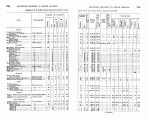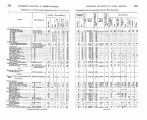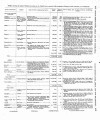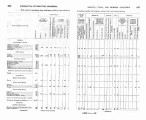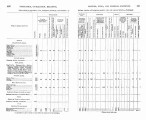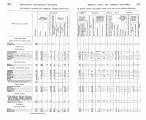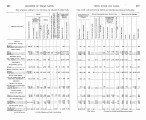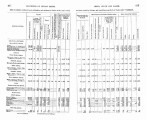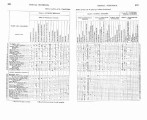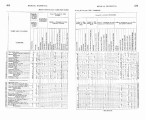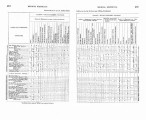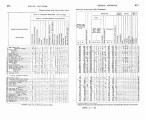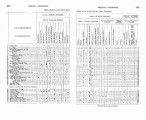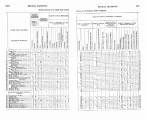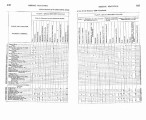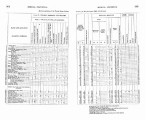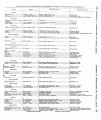| OCR Text |
Show REPORT OF THE COMMISSIONER OF INDIAN AFFAIRS. CXIII That act provides (section 1) that the President of the United Ststes may allot to any Indian of 8 tribe or band located on a reservation containing land "advanta-geous far agricnltoral and grazing purposes," a definite amount of lend, sod pre-scribes (seotion 2 and 3) the quantity of land to be allotted, and how the allotment shall be made. Sect,ion 4 provides for the allotment of land to any Indian not residing on a reser-vatio~ i,o r for whose tribe no reservation has been provided, and who hsg made settle-ment upon any surveyed or unsorveyed lands of the United Statee not otherwise appropriated. Section 5 provides that- Upon the approval of the ~llotmentep rovided for in thiaaot by the Secretary of the Interiorheahdl cnttbe o a t r ~ t ato 1 8 8 ~~ l8~0 vefoiu~ ILe name oi r1e x11~~t cV~UeI~CI.S patnuts ahail bd tof rb,. Ikg.&le ffect and ~i r r lar~t latahte Cniit4 St.~lredorannduiilLoldti ,ul:<ud rh! ld~l ldc lf~o r f i ~ e ] ~ e r . ~ d o f ~ ~ ~ ~ ~ y . n v ~ ~ e a min i t u r ~fo r tho role "80 and inme51 of ilrd 1ndi.m 1 . 1 nLou, rueh alh,ln.rnr shrill harp born mndo. ~~~ - ~~~. or in case of hi8 deosaae, of hi8 heirs i~ooordingtot he laws of the state or Territory where snah lnud is looated, and that, at the expiration of said period, tho United States will convey the same bypatant to .aid Indian, or his heirs as aforesaid, in fse, discharged of said troat, s*nd free of all ohsrge or in. aumbranoe wh%taasver: Pmuided. That the Presidentof the United States m;lS inany osso in his as. aretion extend the period. And ifany conveyance shall be made of the lands set apart and allottea 88 herein provided, or any ooatraat mndh tauohing the asme, before the expiration of the time above mentioned, aooh conveyance or oontract *hall be &Daolotely null and void. The act then goea on to declare that "the law of descent and partition in force in the State or Territory wheresuohlandsaresituate shall apply thereto," after the exe-, cntion and delivery of the patent, except that thelaw of descent and partition of the 1 State of Kansas shall apply to allotmouta of land in the Indian Torritbry. It isnu-necessary to refer particularly to the rest of this seotion. Section 6 providea that the allottees shall have the benefit of and be subject to the laws, both civil and criminal, of the State or Territory in whioh they may reside, and that no Territory shall pass or enforce euy law denying any auoh Indian within its jl~risdiotiont he equal proteotion of the 1 8 , ~ ~I.t then provides that-- Every Indtau born wlhinll~ot*rriloriall irnir*oT the Ur#itvll Slat L Y ho h x ~ v ~ i u ~ ~t,edhr,ni nlp~ airhio r h ~ dIs m8tr. bir rrsial..ol,.. qrpxrnln nnd npirt frorw ary rnba uf Indinna tiorom and Itla :atieytsll tho babileor ei%iil,edii r.,i, L ~ , C I , V c i r r ~ n n c ~I,"" crtirl.tlnf t ~~. -~ ~s ~ ~~ , ~~ir ,r.n~llil~ ,.i* l n r~~ ~ ~ ~ ~ ~~ ~ ~. I the ri.aht s, -n rivileees, and immonities of sooh oitiren. whather suah Indian has been or not.. b"v birth or otherwise, a member. of any tribe of Indiana within tho territorial limits of the United Statas, with-oot in any manner impairing or otherwise affe'eotiug tho right of m y sooh Indian to tribal or other property. Thisaot, together with the preceding acts ofMaroh3,1875(18Stat., 420), Janaary 18, 1831 (21 Stat., 315), and July 4,1884 (23 Stat., Qfi),mark,ss wasobservodhy AetiugAh tarneyOenerd Jenks, in his opinion of July 27, 1888, o new epoch in the hi8tor.v of the Indians, namely, that in whioh Cougress he6 begun to deal with them as indi-vidnsls, and not only ss nations, tribes, or bands, as heretofore. I t is the dis~oam-bennent. of the tribaa or bands, and absorption os citizens of the individuels oompas-ing them by the States ;and Territories containing thelandson whichsaohindividusl~ settle, or may be settled, thst is the policy of tlris new legislation. But Congress has not deemed it safe in making the Indian a, freeholder, to give him at onoe the same control over the land as other freeholders enjoy. The legisla tion above mentioned deprive8 the Indian settler of the right of conveying orenoom-bering the land in any nay for a period stated, or provides thst it shall be held by the United States for a given time in trust for the sole use and beuefit of the Indian and s t the expiration if such time be conveyed to him by patent. The opinion then goes on to show that Congress has the power, and is under a high duty to continno its guardian care over the individual Indian after he has amomed the relation of citizen of a State or Territory, and until he hss been "educated to understand the dignity and responsibilities that belong tocitizenship and the owner-ship of property," and that "it istoprotecthim;' whilerebeivingthis education, that, Congress placed the *bore-meutiof)ed reetraiate upon hie property rights. 9975---ax* |










































































































































































